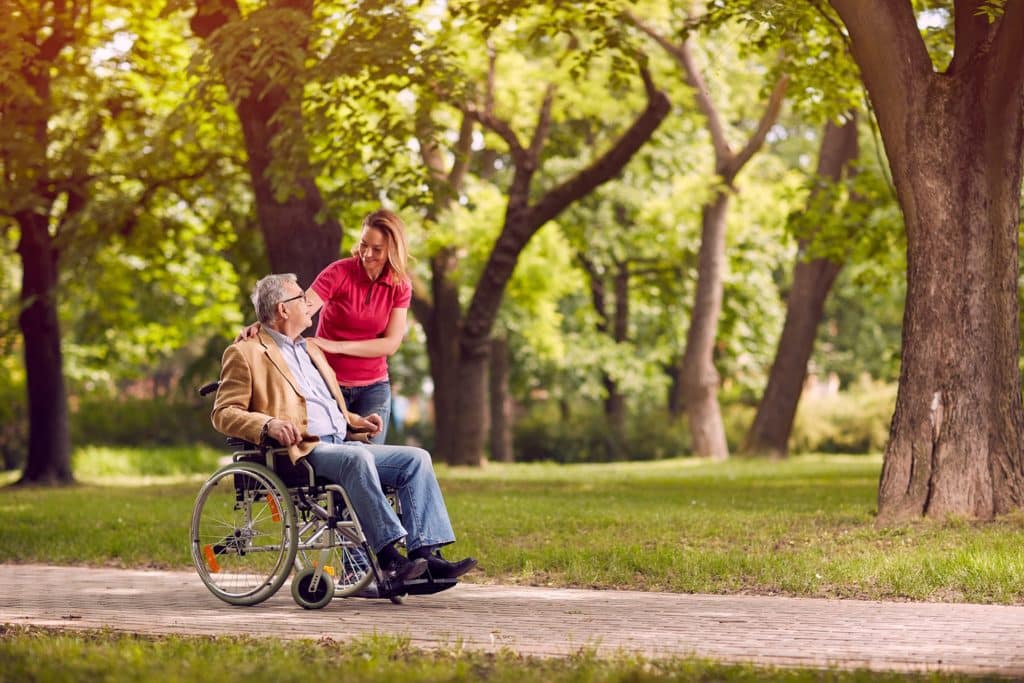
How Do Special Needs Trusts Work?
The most common question faced by special needs parents and caregivers is, ‘What will happen if I am not here?’
Call us Anytime
Laurel, MD 20707
Downs Law Firm, P.C.
Home • Caregiver

The most common question faced by special needs parents and caregivers is, ‘What will happen if I am not here?’

Americans’ longer life spans mean that more families are ‘aging together,’ as researchers call the trend.
No matter how smart you are, you can still become a victim of elder abuse as you age. Who you trust to help you can have devastating consequences if you don’t choose wisely. Mary Weiss has endured the violent death of her son, four strokes and a heart attack. Now she is facing the loss of her home and retirement savings, because of suspected financial elder abuse, according to Fox 9 in “Woman, who helped change research protocols at U of M, allegedly loses savings to caregiver.” The person she depended on throughout it all, is the one who is suspected of taking advantage of her trusting nature. She says she was financially ruined and her nest egg of $150,000 is gone. Debt from credit cards and loans taken out in her name without her consent is mounting. Weiss gained international attention for her battle with the University of Minnesota researchers who ran a research study of a psychiatric drug. Her son took his own life, while enrolled in the study. Because of her fight, the University made a number of changes to its research programs. The man she believes has ripped her off stood by her during that battle, speaking to reporters on her behalf. However, now he has been charged with one count of theft by swindle by the Washington County Attorney, following an investigation by the Cottage Grove Police Department. Howard lived with Weiss, although they were not romantically involved, for 10 years and had become her caregiver. She had suffered a series of strokes and gave him power of attorney over her financial matters. Weiss knew that Howard had a record, including a theft by swindle conviction, but she never thought he would do something bad to her. It was Weiss’ niece who discovered the problem this past spring, when she was going through a year’s worth of bank statements. ATM withdrawals, lottery ticket purchases, loans and credit cards were all done in her name. Washington County Human Services did a separate investigation and notified Weiss that an allegation of financial exploitation had been substantiated. Howard denies taking anything without Weiss’ consent. Weiss is currently living in a nursing home and is recovering from a fall. She said that she would like to return to her townhome but is not sure she will be able to afford to do that. She wants others to understand that this can happen to anyone, even with full control of their senses and no dementia. Reference: Fox 9 (Oct. 22, 2018) “Woman, who helped change research protocols at U of M, allegedly loses savings to caregiver”

The talk may be difficult but may turn out to be necessary. When someone dies or becomes disabled, the people who support and love that person are often in the position of walking into the middle of a movie and trying to figure out “What is going on?” As we age, sharing information ahead of time can be a big help. It might not be the easiest conversation you have ever had. However, it is a good idea to have a talk with your loved ones about what steps to take as you go through the aging process, according to The Des Moines Register in “In 2019, resolve to have a difficult conversation.” The person who is contemplating needing help, may want to start the conversation but the person who may be called on to help may find it too difficult to consider. Who wants to think about their parents getting frail and needing help going to the bathroom? No one. The person who is starting to feel the impact of aging may already be aware of some limitations. However, talking with their children or potential caregivers may change the conversation from “someday” to “soon.” The loss of independence is one of the big milestones, just as gaining independence is a milestone earlier in life. That’s a hard thing to accept for both sides. Those who have lived through this process of needing to become caregivers say that it would have been easier if they would have known what their loved ones wanted. So, would have been knowing what kind of help their loved ones could afford. It’s better to have time to research available resources in advance, rather than operating in crisis mode. This is what your conversations need to address: Medications, physical health, emotional well-being and health care providers Their wishes, if their health declines slowly or rapidly. Do they want to stay at home? Who would they want to help with daily care? Finances: Can they afford to pay for care at home? Has any Medicaid planning been done? What government programs are they eligible for? Do they have a CPA or financial advisor? Estate plan: Where is their Last Will and Testament? Is there a Power of Attorney, Living Will or Medical Directive in place? Who is their estate planning attorney? Documents, including birth certificates, Social Security, insurance cards, safe deposit box keys, computer passwords, etc. Seven out of 10 people over age 65 will need help from others at some point. Most will need it for at least three years, so it might be wise to have the conversation before a difficult situation arises.Reference: The Des Moines Register (Dec. 19, 2018) “In 2019, resolve to have a difficult conversation”